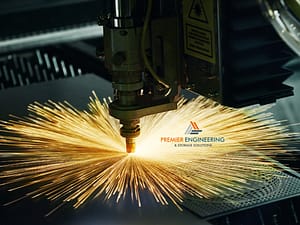Regular car service is crucial for maintaining the health and performance of your vehicle. Consistent car service helps to identify and address potential issues before they become major problems, ensuring that your car runs smoothly and efficiently. Routine maintenance checks can prevent unexpected breakdowns and costly repairs, which can be inconvenient and stressful. By staying on top of car service, you ensure that your vehicle operates at its optimal performance, providing a safer and more reliable driving experience.
The Long-Term Benefits of Routine Car Maintenance
Routine car maintenance offers numerous long-term benefits that extend the life of your vehicle. Regularly serviced cars tend to have better fuel efficiency, reduced emissions, and improved overall performance. Keeping up with scheduled maintenance can also help maintain the car’s resale value, as well-maintained vehicles are more attractive to buyers. Additionally, regular car service can extend the lifespan of critical components such as the engine, transmission, and brakes, ensuring that your car remains dependable for years to come. By investing in routine maintenance, you save money in the long run by avoiding major repairs and extending the life of your vehicle.
Key Components of Regular Car Maintenance
Essential Car Service Tasks
Essential car service tasks are the foundation of effective car maintenance. These tasks typically include:
- Oil Changes: Regular oil changes keep the engine lubricated and running smoothly, preventing wear and tear on engine components.
- Tire Maintenance: This includes checking tire pressure, rotating tires, and inspecting for wear and tear to ensure safe driving conditions.
- Brake Inspections: Regular brake checks and maintenance are crucial for safety, ensuring that your braking system is functioning properly.
- Fluid Checks: Monitoring and topping up essential fluids like coolant, brake fluid, transmission fluid, and windshield washer fluid helps maintain the vehicle’s performance and safety.
- Battery Checks: Regular inspection of the car battery ensures it is holding a charge and functioning correctly, preventing unexpected breakdowns.
Regular Checks and Replacements
In addition to essential service tasks, regular checks and replacements are vital for maintaining your car’s performance:
- Air Filter Replacement: Replacing the air filter ensures that the engine receives clean air, improving fuel efficiency and performance.
- Spark Plug Replacement: Worn spark plugs can affect engine performance and fuel economy. Regular replacement helps maintain smooth engine operation.
- Belt and Hose Inspections: Regularly inspecting and replacing worn belts and hoses prevents breakdowns and ensures that engine components function properly.
- Wheel Alignment and Balancing: Proper wheel alignment and balancing improve handling, extend tire life, and ensure a smooth ride.
- Suspension Checks: Inspecting the suspension system ensures a comfortable ride and helps maintain vehicle stability and control.
Creating a Car Service Schedule
Manufacturer’s Recommendations for Service Intervals
Creating a car service schedule starts with understanding the manufacturer’s recommendations for service intervals. These guidelines, found in the vehicle’s owner’s manual, provide a timeline for when specific maintenance tasks should be performed. Following these recommendations ensures that all critical components are serviced at the right times, preventing premature wear and maintaining the vehicle’s warranty. Common service intervals include:
- Oil Changes: Typically every 5,000 to 7,500 miles.
- Tire Rotations: Every 6,000 to 8,000 miles.
- Brake Inspections: Every 10,000 to 20,000 miles.
- Fluid Checks: At every oil change or as specified by the manufacturer.
- Major Services: Every 30,000, 60,000, and 90,000 miles, covering comprehensive checks and replacements.
Customizing Your Service Schedule Based on Driving Conditions
While manufacturer recommendations are a good starting point, customizing your service schedule based on your driving conditions can further enhance vehicle longevity. Consider factors such as:
- Driving Habits: Frequent short trips, heavy city traffic, or aggressive driving can increase wear and tear, necessitating more frequent maintenance.
- Climate: Extreme temperatures, humidity, and road salt can affect vehicle components, requiring more frequent inspections and replacements.
- Usage: Vehicles used for towing, off-roading, or heavy loads may need more frequent service to handle the additional stress.
Signs Your Car Needs Immediate Attention
Recognizing Common Warning Signs
Being aware of common warning signs that indicate your car needs immediate attention is crucial for preventing major issues. These signs include:
- Unusual Noises: Listen for any unusual sounds such as grinding, squealing, or knocking. These noises can indicate problems with the brakes, engine, or suspension.
- Warning Lights: Pay attention to the dashboard warning lights. Indicators like the check engine light, oil pressure light, or brake warning light signal that your car needs prompt attention.
- Vibrations or Shaking: If you feel vibrations or shaking while driving, it could be a sign of tire imbalance, alignment issues, or engine problems.
- Fluid Leaks: Check for any fluid leaks under your car. Leaking oil, coolant, or brake fluid can lead to serious damage if not addressed immediately.
- Poor Performance: Notice any changes in your car’s performance, such as difficulty starting, reduced power, or poor fuel efficiency. These issues often require immediate diagnosis and repair.
When to Seek Professional Car Service
It’s important to know when to seek professional car service to prevent minor issues from becoming major problems. Seek professional help if you encounter any of the following:
- Persistent Warning Lights: If a warning light remains on after checking basic issues, it’s time to visit a mechanic.
- Strange Noises: If unusual noises persist, have a professional inspect your car to diagnose the issue.
- Fluid Leaks: Any fluid leaks should be assessed by a professional to identify the source and prevent further damage.
- Driving Problems: Difficulty starting, stalling, or any significant changes in handling or performance require immediate professional attention.
- Regular Maintenance: Adhering to regular maintenance schedules and seeking professional service for routine checks and repairs ensures your car remains in good condition.
Benefits of Using Professional Car Service Centres
Advantages of Professional Car Maintenance
Using professional car service centres offers numerous advantages, including:
- Expertise and Experience: Professional mechanics have the training and experience to accurately diagnose and fix a wide range of car issues.
- Advanced Tools and Equipment: Service centres are equipped with advanced diagnostic tools and equipment that ensure precise repairs and maintenance.
- Comprehensive Services: Professional centres offer comprehensive services, from routine maintenance to complex repairs, ensuring all aspects of your car are well-maintained.
- Warranty Protection: Regular service at a professional centre helps maintain your car’s warranty and ensures that any warranty repairs are handled correctly.
- Safety Assurance: Professional maintenance ensures that all safety systems, such as brakes and airbags, are functioning properly, providing peace of mind.
Choosing a Reliable Car Service Centre
When choosing a car service centre, consider the following factors to ensure you select a reliable provider:
- Reputation and Reviews: Check online reviews and ask for recommendations from friends and family to find a reputable service centre.
- Certifications: Look for certifications such as ASE (Automotive Service Excellence) which indicate that the mechanics are well-trained and qualified.
- Transparency: A good service centre should be transparent about their pricing, services, and the work they perform. Ask for detailed estimates and explanations of any recommended repairs.
- Warranty on Work: Choose a service centre that offers a warranty on their work, which shows confidence in their services and provides you with added protection.
- Convenience: Consider the location, hours of operation, and additional services such as shuttle service or loaner cars when choosing a service centre.
Enhancing Vehicle Performance and Longevity
How Regular Maintenance Boosts Performance
Regular maintenance plays a crucial role in enhancing vehicle performance:
- Engine Efficiency: Routine oil changes and engine checks keep the engine running efficiently, improving performance and fuel economy.
- Smooth Handling: Regular tire rotations, alignments, and suspension checks ensure smooth handling and a comfortable ride.
- Optimal Braking: Maintaining the braking system ensures responsive and safe braking, enhancing overall driving performance.
- Fuel Efficiency: Regular maintenance tasks such as air filter replacements and fuel system cleanings help improve fuel efficiency and reduce emissions.
Tips for Keeping Your Car Running Smoothly
To keep your car running smoothly and extend its lifespan, follow these tips:
- Follow Maintenance Schedule: Adhere to the manufacturer’s recommended maintenance schedule to keep all systems in optimal condition.
- Drive Smoothly: Avoid aggressive driving, which can cause unnecessary wear and tear on the engine and other components.
- Keep it Clean: Regularly wash and wax your car to protect the paint and prevent rust. Clean the interior to maintain a comfortable and pleasant driving environment.
- Check Fluid Levels: Regularly check and top up fluids such as oil, coolant, and brake fluid to ensure all systems function properly.
- Listen to Your Car: Pay attention to any changes in performance, sounds, or handling. Address any issues promptly to prevent further damage.








